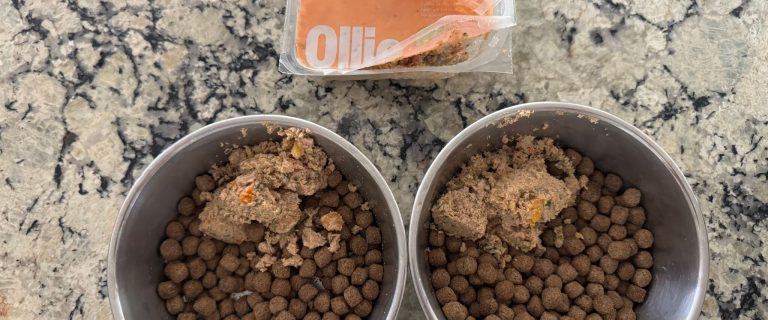You may have heard of Chinese medicine for people, but did you know that it can also be used for dogs? In fact, Chinese medicine has an entire approach to dog food therapy that is quite intriguing. Let’s talk a bit about it so you can decide if it’s right for your dog.
Chinese medicine is often referenced when anyone talks about holistic approaches to healthcare. It seems that it has a treatment for almost everything, and often those treatments work. Something I learned recently is that traditional Chinese medicine extends to dogs, and many people use hot, cold, and neutral foods to help their dogs feel better.
Related: Food Therapy and Cancer – Give Your Dog an Edge
Chinese Medicine and Dogs
A few days ago, I had no idea what hot, cold, or neutral foods were. I had never heard of the Yin and Yang diet. This holistic feeding approach identifies foods as increasing or decreasing a dog’s body heat as well as addressing energy levels and the like. There’s a lot to take in, so I’ll try to give you a crash course on the basics of the whole thing.
Yin and Yang Dogs
So first thing’s first. Let’s take a look at the Yin and Yang concept. This seems to be the foundation for the traditional Yin and Yang diet.
Yin
Yin is the hot side of things. So a Yin dog is a hot dog. They look for cool places to rest, tend to have itchy, inflamed skin, and may be more restless at night.
Hot dog symptoms:
- Look for cool places
- Could be hot to the touch
- Pant even when at rest
- Prone to allergies
- Could have red skin and eyes
- Prone to anxiety
Yang
Yang is the cool side. A Yang dog is a cool dog. According to traditional Chinese medicine, Yin dogs are more weak and fatigued, show an intolerance for exercise, lack appetite, and are short of breath.
Cold dog symptoms:
- Look for warm places
- Relaxed, calm demeanor
- Love blankets and snuggling
- Occasional lack appetite
Traditional Chinese medicine follows the above guidelines for hot and cold dogs and suggests food to help balance out. There are hot and cold foods just like there are hot and cold dogs. Hot foods are called Yin, tonifying, or warming foods. Cold foods are called Yang or cooling foods. There is also a neutral category, which as the name suggests supposedly neither warms or cools your dog’s body.
Yin and Yang Foods
There are many, many Yin, Yang, and neutral foods for dogs in traditional Chinese medicine. While there may be more than what I list below, these are the foods that I routinely found while researching this subject. I’ll break these foods down into Yin, Yang, and neutral and then further into categories.
Note that some of the foods in these categories overlap. I have no idea why.
Yin (Warming/Tonifying) Foods
Meats: Duck, Rabbit, Pork, Beef
Fish: Whitefish, Clam, Cod, Crab, Oyster, Sardine
Vegetables: Black Beans, Kidney Beans, Mung Beans, Beets, String Beans, Asparagus, Peas, Tomatoes
Fruit: Blackberry, Raspberry, Mulberry, Banana, Watermelon, Apple, Lemon, Mango, Pear, Pineapple
Grains: Millet, Barley, Wheat Germ, Wheat, Rice, Quinoa
Miscellaneous: Chlorella, Spirulina, Tofu, Goat’s Milk, Yogurt, Cheese, Chicken Eggs, Cow’s Milk, Duck Eggs, Honey
The Hottest Yin Foods: Lamb, Mutton, Sheep Kidney, Venison, Trout, Cayenne
Yang (Cooling) Foods
Meats: Rabbit, Duck
Fish: Clam, Cod, Crab, Scallop
Vegetables: Tomatoes, Yellow Soy Bean, Bamboo, Broccoli, Celery, Cucumber, Eggplant, Kelp, Lettuce, Mushroom, Seaweed, Mung Beans
Fruit: Apple, Banana, Cranberry, Kiwi, Lemon, Mango, Orange, Pear, Strawberry, Tangerine, Watermelon
Grains: Barley, Buckwheat, Job’s Tears, Millet, Wheat, Wild Rice
Miscellaneous: Duck Eggs, Flax Seed Oil, Marjoram, Peppermint, Salt, Sesame Oil, Tofu, Yogurt, Chicken Egg Whites
Neutral Foods
Meats: Beef, Goose, Pork, Tripe, Quail
Fish: Carp, Catfish, Herring, Mackerel, Salmon, Sardines, Sturgeon, Tuna
Vegetables: Black Soy Beans, Kidney Beans, Beet Root, Broad Beans, Cabbage, Carrots, Cauliflower, Green Beans, Peas, Red Beans, Pumpkin, Potato, Shitake Mushroom, Yams
Fruit: Pineapple, Pomegranate, Papaya, Raspberry
Miscellaneous: Cheese, Milk, Peanut Oil, Flax Seed, Sesame Seeds, Chicken Eggs, Peanuts
Chinese Medicine and Your Dog’s Food?
Above is just SOME of the information out there on the traditional Chinese medicine approach to feeding dogs. The more I read, the more I see that this is a highly complex and intricate approach to feeding, and while it may have the potential to be beneficial, I think attempting to do it on your own is probably not the greatest idea. If you find this idea super intriguing, I would suggest finding a reputable vet who has a through knowledge of traditional Chinese medicine approaches to feeding a dog.
Have you ever tried the Chinese medicine approach to dog food therapy? Tell us your experiences below.
Author
-

A former Veterinary Assistant at Southwest Animal Care Hospital, Ben is an animal lover, blogger, and all-around geek. Along with writing for DogVills, Ben runs his own virtual assistant company, BizzyBim.
View all posts



